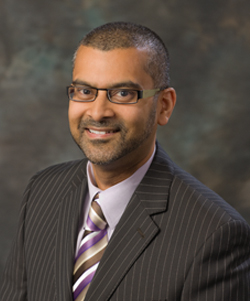The latter is not as far-fetched as some may think, if you recall some of the rhetoric and hysteria during the Ontario provincial election ,when the Conservatives were effectively defeated over the private school funding idea, partly because of the spectre of Islamic schools receiving tax dollars.
To the obvious glee of some, many Muslims have been rightfully and vociferously representing that they are taught to respect and obey the laws of the land. But it is disingenuous to then not extend the benefits of the law when it is uncomfortable; does not accord with the exact image of Islam and Muslims one wants conveyed in public; or is not consistent with a paternalistic imposition on Islam and Muslims. Indeed, many Muslims have not forgotten the “banning” of faith-based arbitration by the McGuinty government when a small group of Muslims publicly tried to use the Arbitration Act or even the review of section 13 of the Canadian Human Rights Act when four Muslim law students filed complaints against Maclean’s for communicating hate.
The defence lawyer in the case in which the woman is a witness has argued that allowing the woman to testify with the niqab will prejudice the ability to assess her credibility. He argued that it was of “critical importance” to be able to see her face. The lawyer is obviously doing his job, but society and the justice system need to look deeper, beyond legal strategy.
First, assessing credibility through demeanour evidence is not something solely assessed from someone’s face. Those present in court will still hear her voice (including the inflections, tone, pauses, etc.); the content of her testimony (conviction, nuances, consistency, hesitations, etc.); and see her eyes and body language. Moreover, the judge can question her and the defence also has the right to cross-examine her, with the latter being the most effective and reliable tool to assess credibility.
Second, contrary to conventional wisdom, scholarly and judicial decisions have also questioned the efficacy of assessing credibility using demeanour evidence. There are numerous studies and reports challenging the reliability of demeanour evidence in assessing credibility, particularly when it comes to cultural, linguistic, racial and religious minorities.
In a widely cited piece on demeanour published in the Cornell Law Review, Professor Olin Guy Wellborn III writes:
On the contrary, there is some evidence that the observation of demeanor diminishes rather than enhances the accuracy of credibility judgments.
He also argues that the ability to accurately detect lying diminishes with observation of the face.
Professor Jeremy Blumenthal in another legal journal article on demeanour concludes that,
…it is unforgivable that the legal system deliberately ignores demonstrated, relevant findings about demeanor evidence and willfully adheres to an ineffectual traditional approach.
Of course, it is imperative for the judicial system to explore ways in which the procedural fairness of the accused can be respected while respecting religious rights and striving to remove cultural/religious barriers to access to justice. When such issues are merely brought up as technical legal arguments without substantiation, the system must not uncritically accept them, particularly when they clash with complex and conflicting rights and public policy imperatives.
Indeed, this case raises serious public policy concerns beyond those already touched upon. Even if technical Islamic and legal rules can be used to deny her the right to testify with her face covered, the decision sets a dangerous precedent in terms of access to justice and possibly discouraging women in such situations from coming forward. As ably argued by the woman’s lawyer, courtroom testimony is extremely difficult and often traumatic for the average person. Now throw in the compounded hardships for sexual assault victims and the additional cultural and religious hurdles and many women may not come forward to report such assaults.
As a relative of the woman told the press: “This is primarily an issue of protection the court offers to victims of sexual assault, especially those from minority communities, who experience the added stigma of bringing these deeply personal issues into open court.”
As the Law Reform Commission of New Zealand concluded in its 1997 report titled Evidence Law: Character and Credibility:
To misinterpret the demeanour of a witness is always a danger, but it is a particular danger when the fact-finder is confronted with a witness belonging to a different culture …
Maybe this time the niqab will be a catalyst to start to question the reliability of using demeanour to assess credibility in a multicultural context. Let’s not nip it in the bud, but rather step back and analyze these issues without resort to reductionism.
Faisal Kutty is general counsel for the Canadian Muslim Civil Liberties Association and an adjunct professor at Osgoode Hall Law School of York University. His articles are archived at www.faisalkutty.com.(Note: You can view every article as one long page if you sign up as an Advocate Member, or higher).





